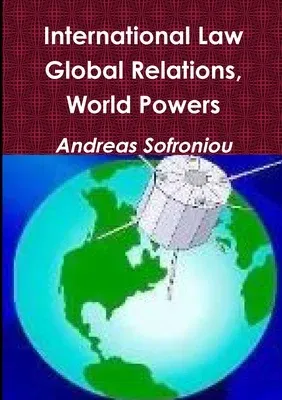Andreas Sofroniou
(Author)International Law, Global Relations, World PowersPaperback, 25 January 2017

Qty
1
Turbo
Ships in 2 - 3 days
In Stock
Free Delivery
Cash on Delivery
15 Days
Free Returns
Secure Checkout
Print Length
448 pages
Language
English
Publisher
Lulu.com
Date Published
25 Jan 2017
ISBN-10
1326929216
ISBN-13
9781326929213
Description
Product Details
Author:
Book Format:
Paperback
Country of Origin:
US
Date Published:
25 January 2017
Dimensions:
21.01 x
14.81 x
2.31 cm
ISBN-10:
1326929216
ISBN-13:
9781326929213
Language:
English
Pages:
448
Publisher:
Weight:
530.7 gm

